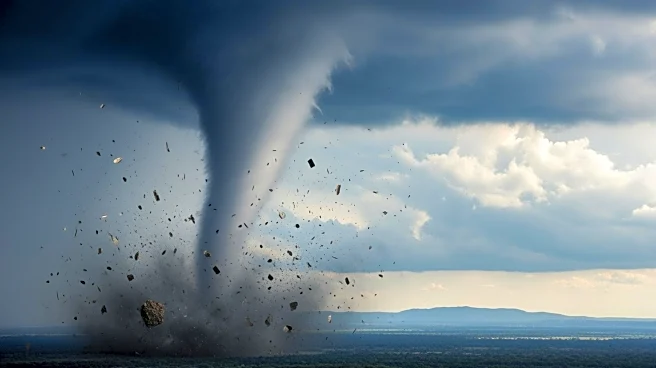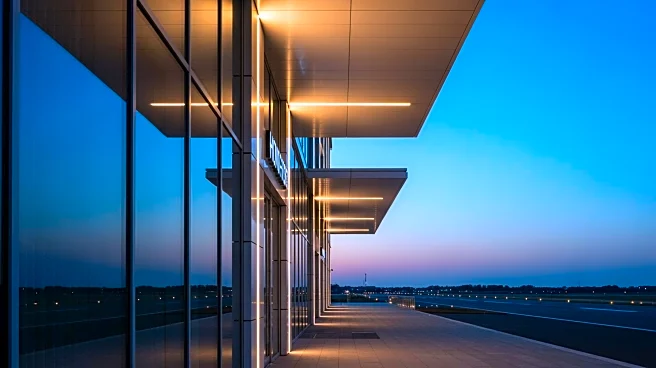What's Happening?
A powerful tornado struck the southern Brazilian state of Paraná on November 8, 2025, resulting in at least six fatalities and hundreds of injuries. The tornado, with winds exceeding 250 kph, caused widespread destruction, including the collapse of numerous
buildings. Emergency services are actively engaged in search and rescue operations. The state government declared a state of emergency and reported that 80% of Rio Bonito do Iguaçu was devastated. According to the Paraná State Government, four deaths occurred in Rio Bonito do Iguaçu and one happened in Guarapuava. The tornado collapsed structures, leaving people trapped, the government said. Search and rescue of the collapsed buildings was still ongoing Saturday. The government said the Military Fire Department of Paraná and health services provided medical attention for the 432 injured people. Nine people were seriously injured. Local and federal Brazilian government officials visited the areas affected on Saturday morning.
Why It's Important?
The tornado's impact on Paraná State highlights the vulnerability of regions to extreme weather events, which can lead to significant human and economic losses. The destruction of infrastructure and homes necessitates immediate emergency response and long-term recovery efforts. The declaration of a state of emergency allows for the mobilization of resources to assist affected communities and rebuild devastated areas. This event underscores the importance of disaster preparedness and resilient infrastructure to mitigate the effects of such natural disasters. The broader significance lies in the potential for increased frequency and intensity of such events due to climate change, prompting discussions on environmental policies and sustainable development practices.
What's Next?
The state government is expected to continue its emergency response efforts, focusing on search and rescue operations and providing medical care to the injured. Reconstruction and recovery plans will likely be developed to restore the affected areas. The government may also review and enhance its disaster preparedness strategies to better handle future incidents. Additionally, there could be increased advocacy for climate change mitigation measures to address the root causes of extreme weather events. Local communities and civil society groups may engage in rebuilding efforts and support initiatives to strengthen resilience against future disasters.
Beyond the Headlines
The tornado's devastation in Paraná State may lead to discussions on the ethical responsibility of governments and industries in addressing climate change and its impacts. The event could also trigger cultural shifts in how communities perceive and prepare for natural disasters, emphasizing the importance of community resilience and solidarity. Long-term shifts may include increased investment in sustainable infrastructure and technology to better predict and respond to extreme weather events. The legal implications could involve reviewing building codes and regulations to ensure structures are more resistant to such disasters.















